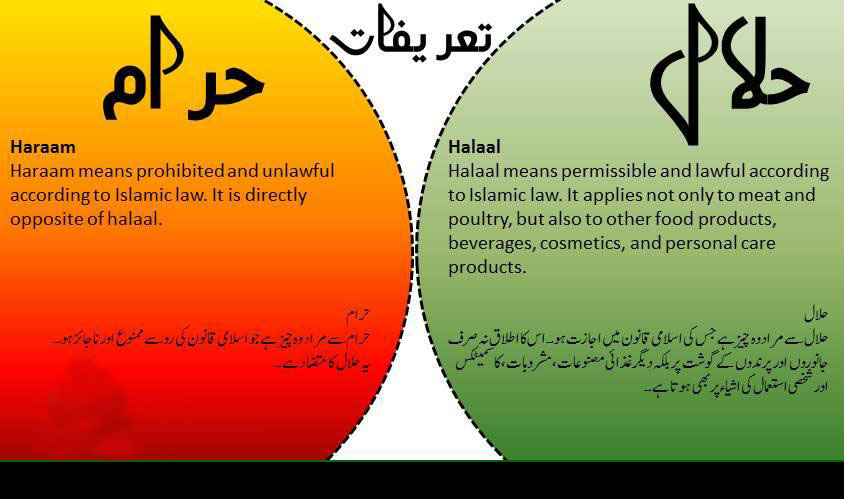Why Halal
For an animal to go from farm to table as halal food, it must have lived a pure life from the very beginning, finishing a cycle of life that is permissible in accordance with Islamic standards. It must have eaten well, been treated well, and been sacrificed well. It may sound good in theory, but what does this all mean?
The kind of treatment and feed an animal receives during its life is important. It should be not be abused, mistreated or caused any pain. It should not be confined to an area where it cannot move or walk normally or get fresh air. It should be fed clean water and food that is appropriate and absolutely never fed another animal or products that contain the by-products of other animals.
As an animal should be treated well during its life, it should also be treated well at the time it is sacrificed for us. The slaughter should never be done in the presence of other animals and the animal should be made comfortable as it is positioned for the sacrifice. The act of the sacrifice should be done with a sharp object, so as to accelerate the process and reduce the pain suffered by the animal as much as possible.
After words, the blood should be completely drained from the animal. It is the blood that carries toxins, germs and bacteria and when left inside the body of the animal, could potentially make people sick. At the very least, it could make the cooked meat quite tough. An amazing result of cooking and consuming halal meat is a healthy meat in which the resulting texture is tender and the meat delicious. Some people say they can “taste the difference”.
On the flip side of halal is the haram (impermissible). The most commonly known haram consumables are alcohol and pork (and their by-products), both of which are the cause of numerous health issues. (This is backed by scientific data.) Although these two products themselves could constitute their own essay, for purposes of this article they are only briefly mentioned here.
Instead of seeing the impermissible as a closed door on food choices, one can embrace an entire world of exciting, delicious and healthy variety of foods. Islam enjoins us to treat our bodies well as it has a right over us and will testify against us on the Day of Judgment for any injustices we may have caused it during our lifetime.
Treating our bodies with wholesome foods free of harmful ingredients — pesticides, toxins, pollutants, filth, etc. — is not just a value desired by Muslims, it’s desired by all of humanity. It’s a common need, a common desire and a common right, and that means everyone can benefit from consuming halal foods and avoiding what is not.
If you truly care about animal rights and want to know which animals are healthier for consumption those that have died through Electrical Stunning/ Gas Stunning / Percussive Stunning or those that have been slaughtered in a halal way, then dig into the matter the scientific way even if you are not a scientist.


